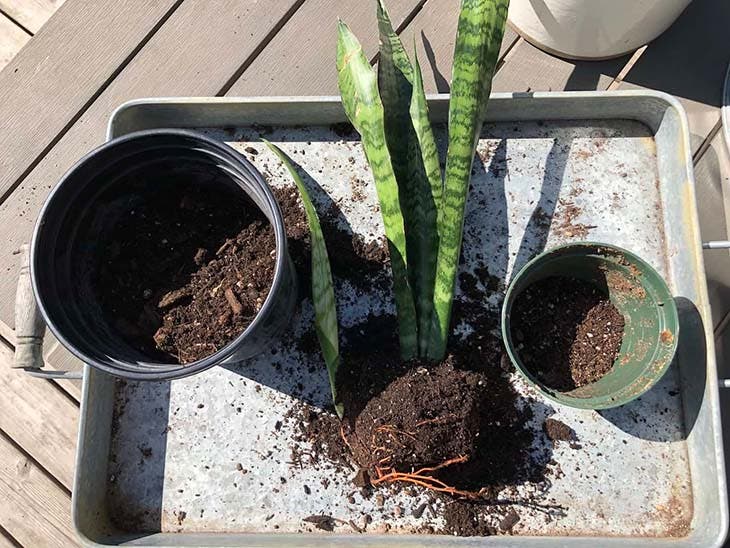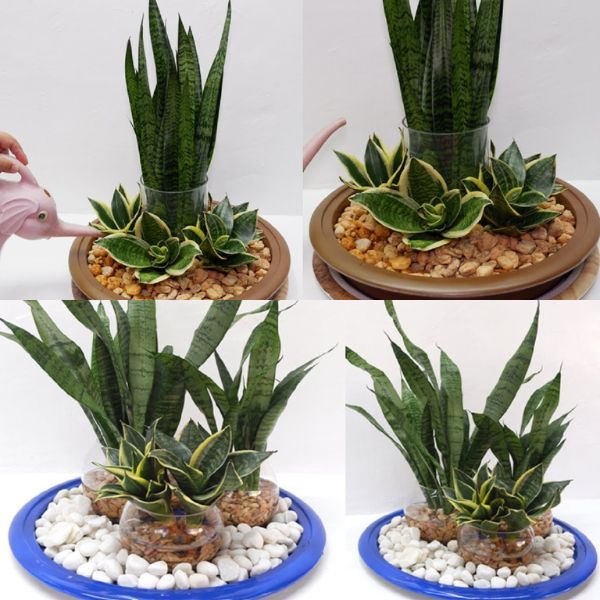ADVERTISEMENT

irrigation
While this plant works well with intermittent watering, too much water will only cause it to rot. It is recommended to water once the soil is dry.

Taking into account the growth phase of the sansevière which runs from March to June, gradually increase the frequency of watering. Either way, you can stick to regular watering depending on the soil’s water needs.
For the summer period between June and September, the plant should be watered once a week knowing that you can place it outdoors but without exposing it to direct sunlight.

For the following months, from September to November, we will return to less frequent but no less regular watering. During this time, the snake plant gradually enters the dormant phase that will take place in winter and will therefore only need monthly watering. As you may have guessed, sansevière generally prefers a dry environment.
Fertilizers
If you want to add fertilizer, you can settle for liquid fertilizer intended for green plants. Keep in mind, however, that if you add potting soil regularly, you won’t need fertilizer.
Take care of the leaves
To keep the leaves, no rocket science. You will only have to cut them off as soon as you notice that they are drying out. To dust the plant, a soft, damp cloth is sufficient.
Cuttings
To multiply the mother-in-law’s tongue, take advantage of the repotting to divide the tufts. To do this, cut the root ball into 2 or 3 parts and then replant them in another substrate. This is the best method to encourage the multiplication of the variegated foliage variety.
Now that you know how to enjoy beautiful sansevières, you can also consult the 7 gardening secrets to have beautiful plants at home.
ADVERTISEMENT
